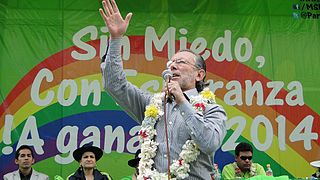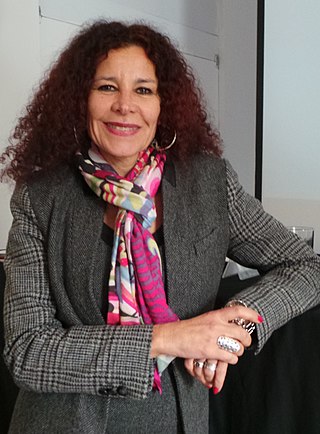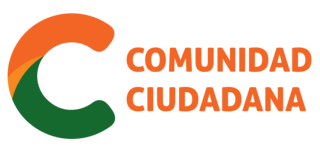
Carlos Diego de Mesa Gisbert is a Bolivian historian, journalist, and politician who served as the 63rd president of Bolivia from 2003 to 2005. As an independent politician, he previously served as the 37th vice president of Bolivia from 2002 to 2003 under Gonzalo Sánchez de Lozada and was the international spokesman for Bolivia's lawsuit against Chile in the International Court of Justice from 2014 to 2018. A member of the Revolutionary Left Front, he has served as leader of Civic Community, the largest opposition parliamentary group in Bolivia, since 2018.
The Fearless Movement is a defunct progressive political party in Bolivia. MSM was founded on March 1, 1999 and dissolved following the 2014 Bolivian general election.

Mexican cumbia is a type of cumbia, a music which originated in Colombia but was later reinvented and adapted in Mexico.

José Manuel Inocencio Pando Solares was a Bolivian soldier and explorer who served as the 25th President of Bolivia from 1899 to 1904. During his government, the Acre War (1899-1903) began, in which Bolivia clashed with Brazil.

Luis Adolfo Siles Salinas was a Bolivian politician who served as the 49th president of Bolivia in 1969 and as the 31st vice president of Bolivia from 1966 to 1969.

Juan Fernando del Granado Cosío, often referred to as Juan Sin Miedo, is a Bolivian human rights lawyer and politician who served as mayor of La Paz from 2000 to 2004 and 2005 to 2010. A member of the Fearless Movement, of which he was leader, he previously served as a member of the Chamber of Deputies from La Paz from 1993 to 1999.

The 2010 Bolivian regional elections were held on 4 April 2010. Departmental and municipal authorities were elected by an electorate of approximately 5 million people. Among the officials elected are:
The Movement for Sovereignty is a leftist, indigenist Bolivian political party founded by dissidents of the Movement for Socialism (MAS-IPSP). Its leader, and fourth-place candidate for Governor of La Paz department in the 2010 regional election is Lino Villca. Other MAS-IPSP activists involved in founding the MPS include Óscar Chirinos, Miguel Machaca, and Rufo Calle. The party's colors are blue, white, and yellow.

Félix Patzi Paco is a Bolivian academic and politician. He was the governor of the La Paz Department from 2015 to 2021. A member of the Aymara ethnic group, he has been active in supporting indigenous movements in Bolivia.

Elizabeth Cristina Salguero Carrillo is a Bolivian diplomat, journalist, politician, and women's rights activist who served as minister of cultures from 2011 to 2012. A member of the Movement for Socialism, she previously served as a party-list member of the Chamber of Deputies from La Paz from 2006 to 2009. In 2009, she was elected as a substitute party-list member of the Chamber of Deputies from La Paz but resigned before taking office in order to launch an ultimately unsuccessful La Paz mayoral campaign. From 2012 to 2015, she served as ambassador of Bolivia to Germany, and since then has worked as an international expert in strategic planning at UN Women.

Edmundo Novillo Aguilar is a Bolivian lawyer, politician, and Governor of Cochabamba. His political career includes serving on the Departmental Council, as Mayor of Totora, and as a Deputy in the Bolivian Chamber of Deputies. He was Presidents of the Chamber of Deputies for four years from 2006 to 2010. He is affiliated with the Movement for Socialism (MAS-IPSP), and was the first MAS-IPSP member to serve a President of the Chamber of Deputies.

Luis Alberto Arce Catacora, often referred to as Lucho, is a Bolivian banker, economist, and politician serving as the 67th president of Bolivia since 2020. A member of the Movement for Socialism, he previously served as minister of finance—later minister of economy and public finance—from 2006 to 2017, and in 2019.
Luís Espinal Camps (1932–1980), also known by the nickname "Lucho" and by the Catalan name Lluís Espinal i Camps, was a Spanish Jesuit priest, poet, journalist, filmmaker, and film critic.
Eliana Paco Paredes is an indigenous Aymara Bolivian fashion designer from La Paz. In 2016, after exhibiting her chola designs at the Bolivia Fashion Week in June, she achieved recognition in New York City, participating in the September fashion week.

Civic Community is a liberal Bolivian political coalition led by former president Carlos Mesa, founded in 2018 to contest the 2019 general election. It was born of the alliance of Revolutionary Left Front (FRI), Sovereignty and Freedom (Sol.Bo), All Organization, and Kochala Force parties. The alliance holds Mesa's presidential candidacy, with former minister Gustavo Pedraza as his running mate. The CC elected 50 deputies and 14 senators in the country's Plurinational Legislative Assembly in the election.

Rogelio Mayta Mayta is a Bolivian lawyer and politician who served as the Foreign Minister of Bolivia from 9 November 2020 to 15 November 2023 under the administration of Luis Arce.

Andrónico Rodríguez Ledezma is a Bolivian cocalero activist, political scientist, politician, and trade unionist serving as president of the Senate since 2020. A member of the Movement for Socialism, he serves as senator for Cochabamba. Rodríguez's lengthy career in the cocalero union hierarchy saw him serve as general secretary of the 21 September Workers' Center from 2015 to 2016 and as executive of the Mamoré Bulo Bulo Federation from 2016 to 2018, in addition to a multitude of other minor positions. He has served as vice president of the Coordination Committee of the Six Federations of the Tropic of Cochabamba since 2018 and held office as president of the organization from 2019 to 2020 in the absence of the body's longtime leader, Evo Morales.
Events from the year 2022 in Bolivia.
The 2021 La Paz municipal election was held in La Paz, Bolivia on Sunday, 7 March 2021, involving separate contests for mayor and all eleven municipal council seats. Incumbent mayor Luis Revilla was eligible to seek a third term but declined, leaving the mayoralty an open contest. The election was won by former minister of public works Iván Arias of the alliance, who attained a near absolute majority of 49.52 percent against a field of ten other candidates. On the municipal ballot, Somos Pueblo won 48.04 percent of the vote, winning the six seats needed to exercise a simple majority on the municipal council, with the Movement for Socialism taking the remaining five seats. Revilla's party, Sovereignty and Liberty, lost both the mayoralty and all representation on the municipal council, concluding a twenty-year period of political continuity that started in 2000 with the assumption of Juan del Granado.

Hernán Iván Arias Durán, often referred to as El Negro, is a Bolivian politician, political analyst, and sociologist serving as mayor of La Paz since 2021. A member of the For the Common Good, of which he is the leader, he previously served as minister of public works from 2019 to 2020 and vice minister of popular participation from 2001 to 2002. A specialist in decentralized public management and indigenous matters, he was the private secretary of Víctor Hugo Cárdenas, the first indigenous vice president, and was part of the team that drafted the Law of Popular Participation, which implemented municipalism in Bolivia through the direct election of local authorities.














